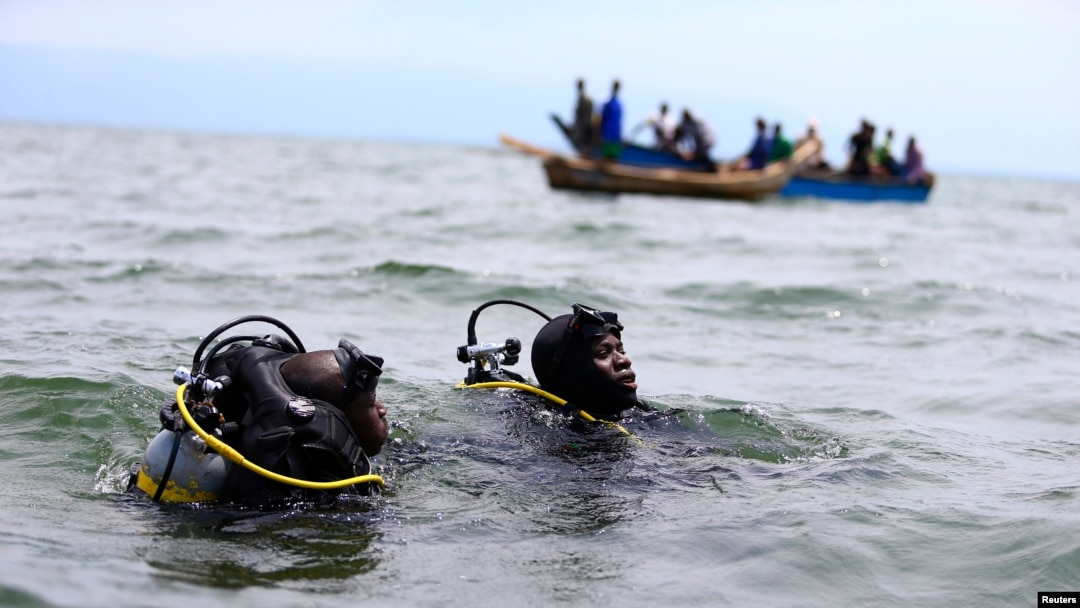The U.N. refugee agency is moving to help family members and victims of a boat accident that the Democratic Republic of Congo says left 251 people dead.
The boat full of Congolese refugees capsized on Lake Albert last Saturday after leaving Uganda, bound for the DRC. Congo's government announced the updated death toll on Thursday.
A refugee agency spokeswoman, Fatoumata Lejeune-Kaba, says survivors and family members are receiving psychological support and other assistance at their refugee camps in Uganda.
The spokeswoman tells VOA there has been a recent rise in the number of refugees returning to their homes in Congo's volatile North Kivu province.
She said while many refugees believe security in North Kivu has improved enough for them to return home, the U.N. has not been promoting returns to the region.
"It is still a place where security gets better and then the situation could worsen. There are still too many rebel groups around, armed groups roaming. So, we don't feel that it is the right time for mass returns," said Kaba.
For years, United Nations and Congolese forces have battled rebel groups in the mineral-rich eastern DRC, including M23 and the Rwanda Hutu FDLR.
The DRC government says about 50 people survived Saturday's boat accident. On Thursday, Congolese President Joseph Kabila announced three days of mourning for those who drowned.
The U.N.'s Lejeune-Kaba says Uganda currently hosts about 329,000 refugees from various countries, most recently from South Sudan.
She says relief workers are having a hard time meeting the refugees' basic needs.
"We are basically overwhelmed in terms of the assistance that we need to provide on an emergency level, deployment of staff to the border. So, it is becoming more and more challenging. And, of course, the Congolese have been Uganda for a long time and the longer people stay in exile, the less our operations to assist them are funded," she said.
The boat full of Congolese refugees capsized on Lake Albert last Saturday after leaving Uganda, bound for the DRC. Congo's government announced the updated death toll on Thursday.
A refugee agency spokeswoman, Fatoumata Lejeune-Kaba, says survivors and family members are receiving psychological support and other assistance at their refugee camps in Uganda.
The spokeswoman tells VOA there has been a recent rise in the number of refugees returning to their homes in Congo's volatile North Kivu province.
She said while many refugees believe security in North Kivu has improved enough for them to return home, the U.N. has not been promoting returns to the region.
"It is still a place where security gets better and then the situation could worsen. There are still too many rebel groups around, armed groups roaming. So, we don't feel that it is the right time for mass returns," said Kaba.
For years, United Nations and Congolese forces have battled rebel groups in the mineral-rich eastern DRC, including M23 and the Rwanda Hutu FDLR.
The DRC government says about 50 people survived Saturday's boat accident. On Thursday, Congolese President Joseph Kabila announced three days of mourning for those who drowned.
The U.N.'s Lejeune-Kaba says Uganda currently hosts about 329,000 refugees from various countries, most recently from South Sudan.
She says relief workers are having a hard time meeting the refugees' basic needs.
"We are basically overwhelmed in terms of the assistance that we need to provide on an emergency level, deployment of staff to the border. So, it is becoming more and more challenging. And, of course, the Congolese have been Uganda for a long time and the longer people stay in exile, the less our operations to assist them are funded," she said.



